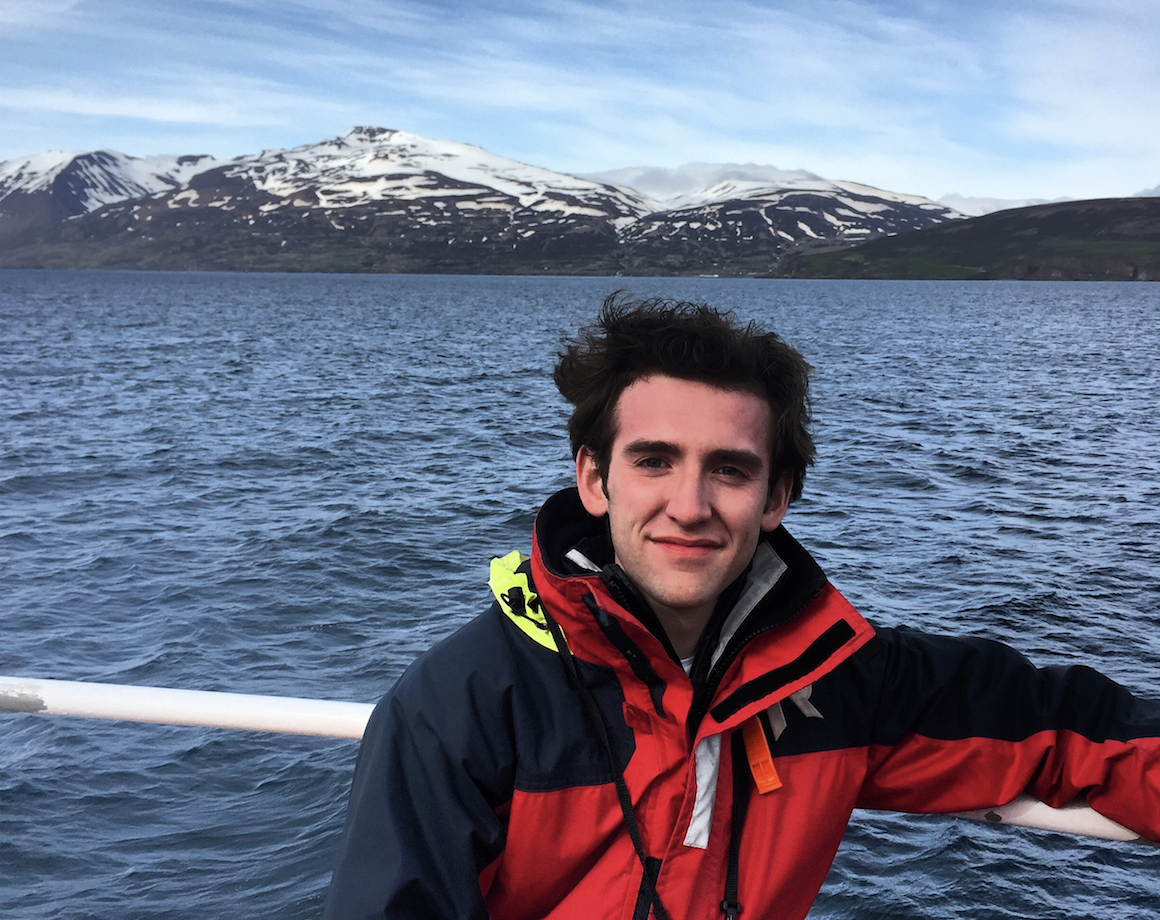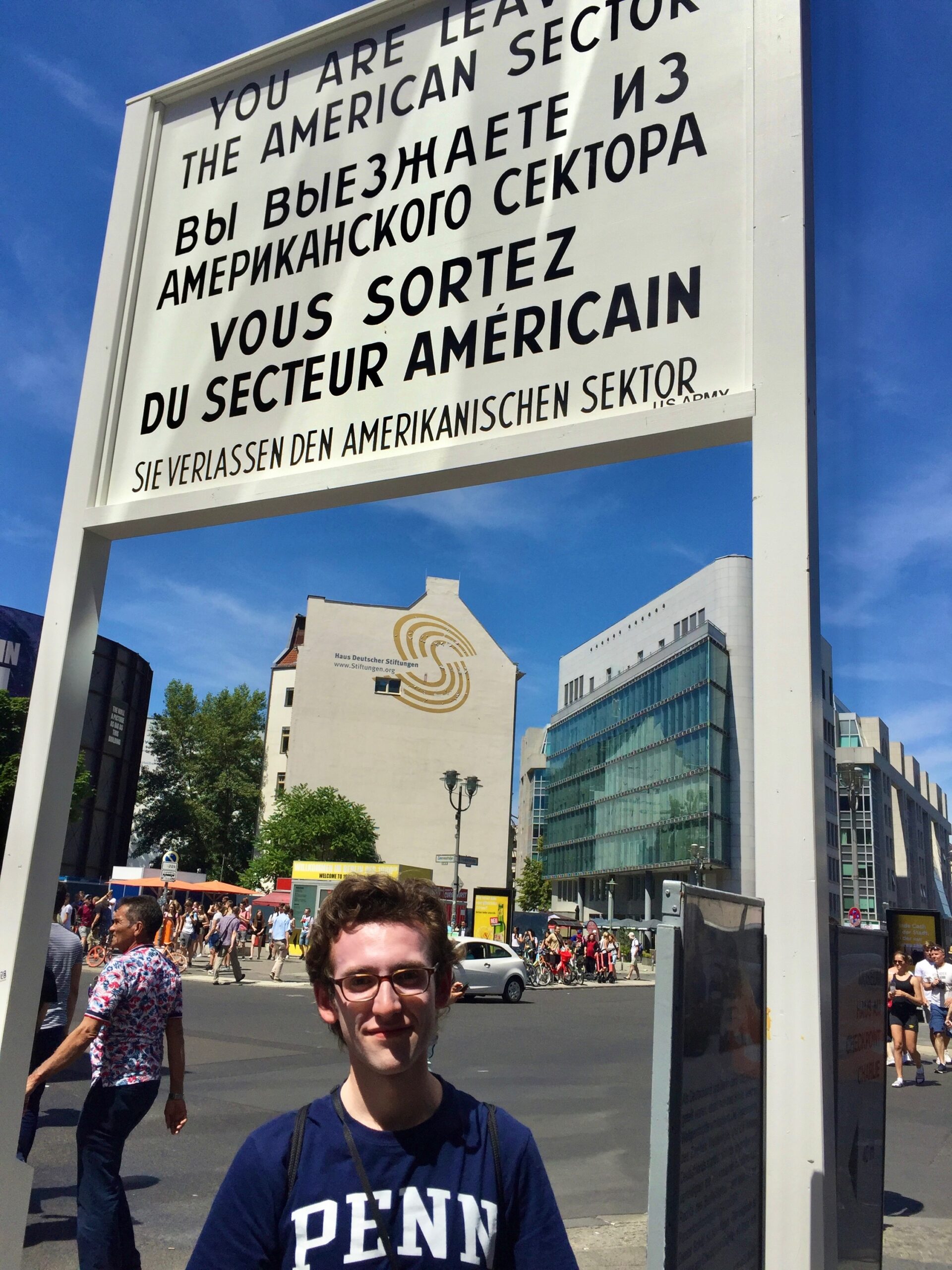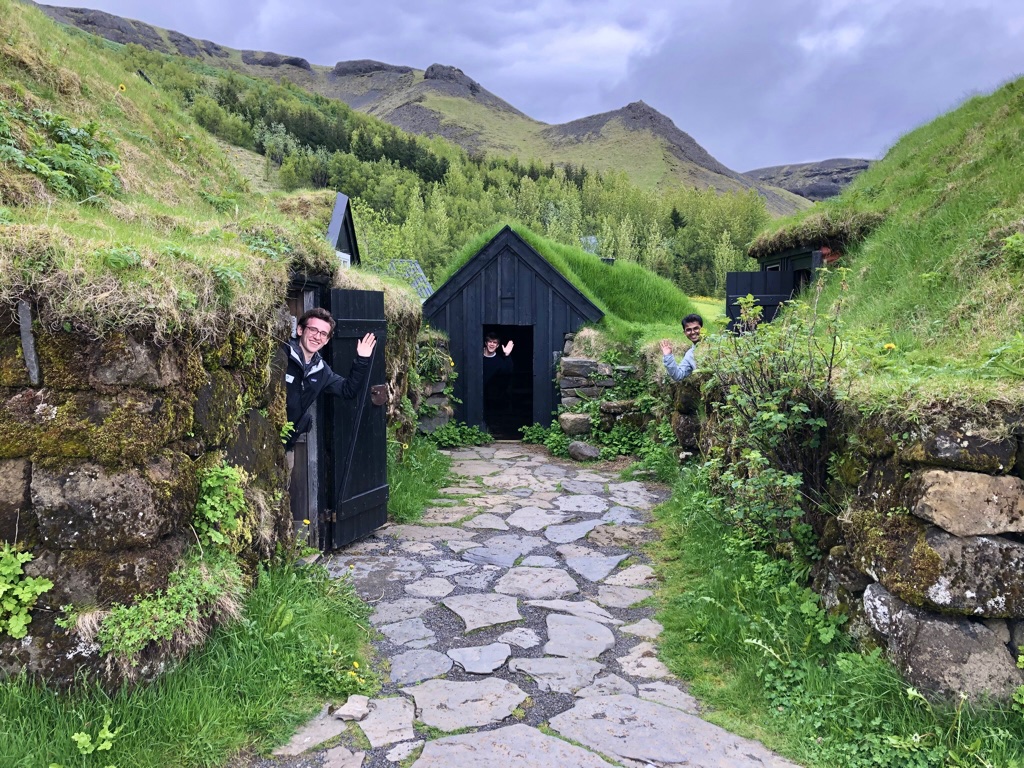Q&A with Joseph Squillaro, CAS ’21
By: Juliann Barbella, CAS ’21

Joseph Squillaro, a senior in the College of Arts and Sciences studying Philosophy, Politics, and Economics, has participated in a Penn Global Seminar in Iceland and a Penn Summer Abroad Program in Germany and the Netherlands. During the 2020-2021 academic year, Joseph is serving as a Penn Abroad Leader, which is Penn Abroad’s student advisory board focused on special projects and supporting fellow students interested in global experiences. We sat down with Joseph to learn more about how his academic interests guided his study abroad plans, his most memorable experiences abroad, and the lasting impact his study abroad experiences have had on his life.
Tell me about yourself. What is your major, your interests, and what Penn Abroad programs did you participate in?
My name is Joseph Squillaro. I am a student in the College, studying PPE (Philosophy, Politics, and Economics) with a concentration in Internet Law and Cyber Policy. I participated in two study abroad programs. The first was a Penn Global Seminar to Iceland during the summer of 2019. It was a Spring PGS, so we traveled to Iceland after school ended. This program focused on the Icelandic environment, as it was an Earth science class, so we studied the Icelandic environment and different environmental policies such as energy, land use, and preservation. Later that summer, I did a Penn Summer Abroad to Berlin and Rotterdam which was really exciting. It was a similar type of program about the environment but specifically focused on water and energy management. In the Netherlands, it was more focused on water management, and in Germany, it was more focused on energy policy.
Why did you choose those programs?
I always had an interest in environmental science and environmental policy. These trips were a perfect marriage of my two interests: the environment and policy. Iceland was an experience of working with the locals and seeing how they used the best practices to conserve their land. Meanwhile, in the Netherlands and Germany, we learned about how very industrialized countries that have large economies are dealing with environmental issues and their role in reducing climate change. So in the Netherlands we learned about producing water barriers, and in Germany it was phasing out their nuclear program and converting to renewables.
What was your living situation?
Both programs were similar in the sense that we didn’t have to find our own housing: the programs managed it. In Iceland, it was very much “get up and go.” Every day we were moving to a new location. It was crazy. I didn’t get any sleep, but it was exhilarating. If you’re familiar with Iceland – or even if you’re not – there’s the Ring Road (a long road that goes around the entire country). Our whole trip was traveling around the Ring Road, so every day we stopped at a hotel until we made it back to the capital, Reykjavík. It was very hectic but very fun, very on-the-go, and we had great accommodations. While in Europe, we were a little bit more planted. Rotterdam was where we were based for the first half of the trip. We stayed in a houseboat which was a surreal experience. You couldn’t have this experience anywhere else. The Netherlands has a vast canal system, so we flew into Amsterdam and we met at a houseboat that the program rented out. All the students that were on the houseboat were Penn students, so we had a great bonding experience. We basically rode the boat through the locks in the Netherlands. Amsterdam is at the top and Rotterdam is on the bottom of the country, so we went through the entirety of the country and saw it in a way many others haven’t. Then when we went to Berlin it was a more conventional setting where we stayed in a dorm. I got to do it all and cover all the bases.
What was your favorite experience among the trips and why?
In Iceland, one of my favorite experiences was on this farm that we went to. It’s closer into the interior of Iceland – you have to drive a way to get there – and it’s a re-creation of an old Icelandic homestead. We stayed there for a night and basically lived like Icelandic farmers for a day. It was such a unique experience. We had traditional Icelandic food, saw Icelandic horses, and did a lot of interesting things that only Icelanders would have done (like crossing a river on a hand-pulled cable car). While on the other trip, my favorite experience was probably the houseboat because it wasn’t just a place to sleep, it was the experience. I think one of the coolest adventures we had was when we were going from Amsterdam to Rotterdam. It’s a long trip, so we had to stop midway, and we moored on the side of a canal in an unknown town in the Dutch countryside. We didn’t have anything to do that night so our professor said that we could get off and explore the town. A group of us just got off the boat, walked around, and saw tulip fields and windmills. I think it was the unexpected nature that made it so special.
Is there something that you miss that you can’t get in the US?
In the Netherlands, they are big on stroopwafels. It’s a cliched food in the US, but in the Netherlands, they love their stroopwafels. I’m a big fan of them here, so when I was there, I was in stroopwafel heaven. You cannot get the stroopwafel of the Netherlands in the United States. They had so many different flavors– I didn’t even think you could have so many different flavors. In the US, we typically only have maple. But there, they have lemon, orange, pineapple, anything you can think of infused in the sugar syrup. I definitely miss having them every day for breakfast.
Which country was your favorite?
That’s a hard question because I’m a bit biased. I speak some German and I’ve studied it, so Germany would probably be my answer. There’s something about the country, especially Berlin. Berlin is a city of many histories. You have so many layers that you walk through and you can experience. Each of them has its own unique flair which makes Berlin what it is today. You have Old Berlin when it was part of Prussia, then you see aspects of Berlin during the German Empire, followed by how the Third Reich changed the city. You can also see remnants of when Berlin was divided with the wall, as opposed to the Berlin of the modern-day Bundesrepublik. When you walk through the streets, you can see every single part of that city’s history.

What was the most challenging thing about living abroad?
In many of the places we went, I could not speak the language and English was not always available. Especially in Germany, you could tell when you got outside of the city: some people had a bit more broken English. I do speak German, so I was able to communicate somewhat. But just as I was saying with their English, I am nowhere near fluent or native in German. That was difficult because a lot of what we were talking about was high-level topics. It wasn’t just “Mein Name ist Joseph” (“my name is Joseph”), but more like “what is the energy policy in Germany?” – concepts that my diction just did not have. But, by and large, there was always someone else in the group who was able to translate for us. The professor who came with us, Professor Richter, was fluent in German – he’s a German professor – so we did get the full experience, it was just that barrier that was sometimes difficult.
Were you involved with the town’s community?
I did try to do as much as I could. We had a lot of free time after our day in the program was over, which I used to walk around, see things I typically wouldn’t have, and try to get off the beaten path from what tourists would do. So, for example, there is a fairly large health movement in Berlin. Many Berliners are enthusiastic about health grocery stores – think of Whole Foods and Trader Joes – so I decided to map out the best stores like that in Berlin and I went to one. No tourists were there so it was only Berliners. It was really fascinating to talk to them in German about health foods. That was a rewarding cultural experience, by getting into their culture and relating to them in an entirely different aspect.
What was an experience you had that was the most different from ones in the US?
I think I’ll go back to the Iceland experience for this one. It really has to do with how people consider themselves to be stewards of the land. I think the US really doesn’t put a lot of emphasis on this type of thinking. We’re not, unfortunately, very conscious of our environment and I think that has led us toward a lot of damage whereas Iceland really preserves their environment and mitigates the effects of tourism on the land. The country has boomed with tourism in the last 5 years, as Iceland has been considered the “place to go.” Watching Iceland actually work and cope with this new reality was really enlightening and something you don’t see often in the US. The US typically allows unchecked and unfettered access to the natural environment whereas Iceland chooses to reserve and limit the number of people in these parks because this is their land and they want to preserve it for generations to come.
Did any of the programs make you adapt more sustainable lifestyle changes at home?
Yes! So, when we were in Europe, we didn’t use single-use bottles. Instead, we all got this very cool bottle that is very popular in Germany and the Netherlands. It’s called a Dopper and it has a very low impact on the environment. It’s actually designed in the Netherlands and when I got home, I made a pact to solely use reusable bottles. I’ve been using that Dopper ever since.
Do you have any advice for people looking to spend time in their academic careers abroad?
Definitely, I would say “do it.” I’ll admit that I was very nervous to go abroad for the first time. I didn’t know if I could do it, being in a foreign place without my family or guidance, and really able to handle those pressures. I chose to lean into that discomfort, and I’d encourage those thinking about going abroad to do that too. I guarantee you; you will come back and say, “that was an experience of a lifetime.” I have so many photos from these abroad experiences and I look back at them fondly now and then. I appreciate that if I didn’t take that leap – that lean into discomfort – I wouldn’t have had these memories that likely, I won’t be able to have again as I go on into my career and adult life. So, that would be my advice: just do it. Seize the moment.

Penn Global Seminars combine intensive semester-long study with a short-term travel component that deepens your understanding of concepts discussed in the classroom. Courses options are available for Penn undergraduate students across majors and years.
Penn Global Seminars combine intensive semester-long study with a short-term travel component that deepens your understanding of concepts discussed in the classroom. Courses options are available for Penn undergraduate students across majors and years.
Penn Global Seminars combine intensive semester-long study with a short-term travel component that deepens your understanding of concepts discussed in the classroom. Courses options are available for Penn undergraduate students across majors and years.